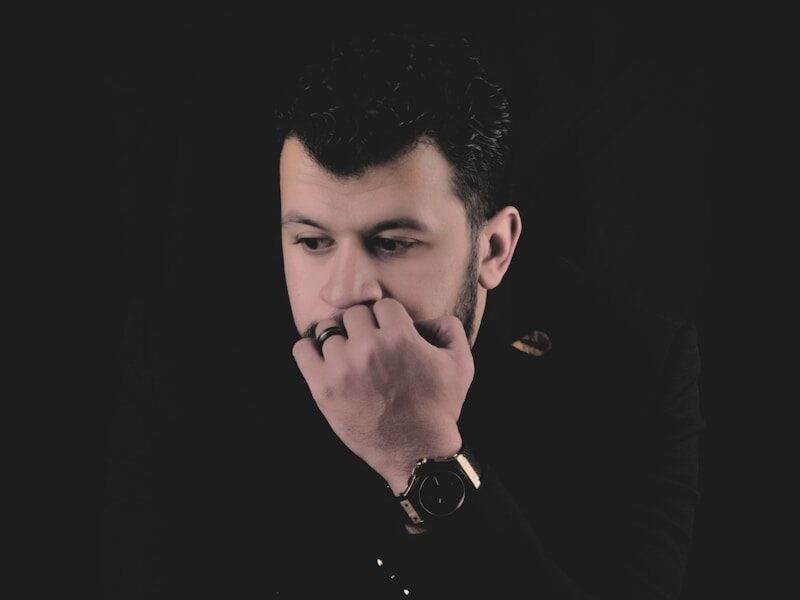
Being raised by a narcissistic parent isn’t always obvious, especially when you’re still a child. Narcissists are skilled at manipulation, gaslighting, and rewriting reality in ways that can make their children feel guilty for even questioning the dysfunction. So, if you grew up constantly feeling “not enough” or were treated more like a prop than a person, this list might resonate more than you expect.
You Apologize Even When You’ve Done Nothing Wrong

Children of narcissistic parents often grow up walking on eggshells. To survive emotionally, you may have learned that taking the blame, even when innocent, kept the peace. As an adult, this shows up as chronic over-apologizing, guilt over setting boundaries, or feeling responsible for other people’s emotions.
You Struggle With Self-Worth

A narcissistic parent tends to see their child as an extension of themselves, and not a separate individual. As a result, praise is conditional, and love is transactional. If you didn’t meet their emotional or image-based expectations, you were ignored or punished. Over time, this trains you to see your value as tied to performance or perfection.
You Second-Guess Your Reality

Gaslighting is a hallmark trait of narcissistic parenting. If your parent constantly denied things they said or twisted your words, you learned to doubt your own memory and perception. Even in adulthood, you may find yourself asking others, “Am I overreacting?” or “Did that really happen?”—because you’ve been conditioned not to trust your own instincts.
You Feel Guilty for Saying “No”

A narcissistic parent often violates boundaries and punishes autonomy. Saying “no” may have led to emotional withdrawal, guilt trips, or explosive reactions. As a result, you grew up feeling that saying no means you’re selfish or bad. This guilt lingers into adulthood, especially in relationships where you’re afraid of being seen as difficult or unloving.
You Fear Being ‘Too Much’ or ‘Not Enough’

Narcissists often swing between idealizing and devaluing their children. You may have been praised one day and humiliated the next. This inconsistency teaches you to constantly monitor how you’re coming across: Am I being too emotional? Too quiet? Too needy? You live in a constant loop of self-editing, afraid of tipping the scale.
You’re Drawn to Toxic Relationships

When emotional instability feels normal, you might subconsciously seek it out in adulthood. Narcissistic parenting wires you to equate chaos with love and tension with connection. You may find yourself in relationships with controlling, critical, or emotionally distant people because it’s what feels familiar, even if it hurts.
You Have a Deep Fear of Abandonment

Love in a narcissistic household is often conditional. Affection may have been withheld to manipulate your behavior or enforce loyalty. This creates a lifelong fear of being abandoned, replaced, or forgotten. You may cling to relationships that aren’t good for you, simply because being alone triggers deep emotional panic rooted in childhood neglect.
Your Achievements Feel Empty

Even when you succeed, it may not feel satisfying because your narcissistic parent either downplayed your wins or made them about themselves. “You got that from me,” they might say. Or they’d raise the bar just high enough so you never felt quite good enough. This leads to a drive for perfection that never truly rewards.
You Struggle With Identity

If your parent constantly imposed their opinions, values, and image onto you, your own sense of identity may have been stunted. As an adult, you might feel unsure about who you are, what you believe, or what you want. You’ve spent so much time pleasing others that figuring out your true self feels overwhelming or even selfish.
You’re Hyper-Aware of Other People’s Moods

Growing up, you may have learned to read every micro-expression, tone change, and body language cue in your parent, because your emotional safety depended on it. Now, as an adult, you may feel exhausted from constantly monitoring how others feel, even at the expense of your own needs or comfort.
You Were the ‘Golden Child’ or the ‘Scapegoat’, or Both

Narcissistic parents often split their children into roles to serve their emotional needs. If you were the golden child, you were expected to succeed for their image. If you were the scapegoat, you were blamed for everything wrong. Some children switch between both roles, which creates lifelong confusion and internal conflict about their worth and place in the family.
You Were Parentified Too Early

A narcissistic parent often forces their child into the role of emotional caretaker or therapist. Instead of being nurtured, you had to manage their moods, fears, or self-esteem. This leads to a distorted view of relationships, where you feel responsible for everyone’s happiness, but are completely out of touch with your own needs.
You Don’t Know What Healthy Boundaries Look Like

In narcissistic households, boundaries are seen as disrespect. Saying you need space, privacy, or autonomy may have been met with guilt, rage, or mockery. As an adult, you may either let others walk all over you, or you overcorrect and become extremely guarded. Finding a middle ground feels foreign and unsafe.
You Experience Chronic Shame

Shame is a powerful control tool in narcissistic parenting. You were likely made to feel bad for having normal emotions, making mistakes, or needing attention. This creates a baseline sense of shame that lingers into adulthood. You may feel broken, “too much,” or constantly apologetic, even when no one’s accusing you of anything.
You’re Still Craving Their Approval (Even After Going No Contact)

The deepest cut of narcissistic parenting is that even when you logically understand the abuse, emotionally, a part of you still wants to be loved by them. You may fantasize about them finally saying, “I’m proud of you” or “I was wrong.” This craving can haunt you for years, even if you’ve walked away for good.

